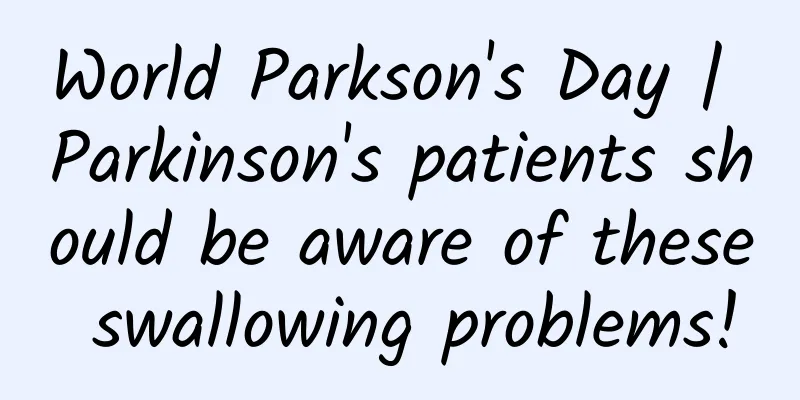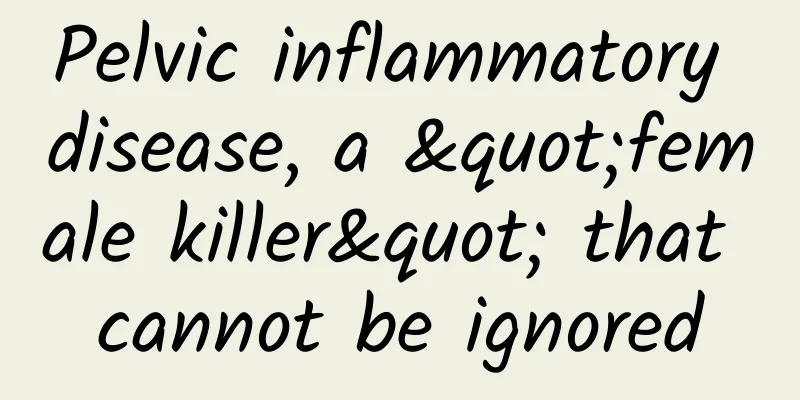World Parkson's Day | Parkinson's patients should be aware of these swallowing problems!

|
Parkinson's disease is a common neurodegenerative disease. Its motor symptoms mainly include resting tremor, muscle rigidity, bradykinesia, and posture and gait disorders, and its non-motor symptoms mainly include cognitive impairment, emotional disorders, sleep symptoms, etc. Swallowing disorders are also common symptoms in Parkinson's patients. Swallowing disorders can lead to various complications in Parkinson's patients, such as malnutrition, dehydration and secondary pneumonia, among which secondary pneumonia is one of the most common causes of death in Parkinson's patients. What are the symptoms of dysphagia in patients with Parkinson's disease? Parkinson's patients may experience freezing of gait, which means obvious hesitation when starting, as if frozen, but once the freezing phenomenon disappears, walking becomes relatively normal. Parkinson's patients may also experience oropharyngeal freezing when swallowing, which is similar to freezing of gait. There may be three manifestations: panic swallowing, tongue muscle tremor or akinesia. Parkinson's patients have abnormal muscle tone, decreased hyoid bone mobility, abnormal head and neck posture, and may have abnormalities in the oral, pharyngeal, and esophageal phases of swallowing. 1. Oral stage - low chewing efficiency and drooling. During the oral stage of swallowing, Parkinson's patients often have tongue muscle tremors and uncoordinated movements, which cause food to roll back and forth repeatedly in the mouth and have difficulty reaching the pharynx. After many repetitions, the tongue has enough strength to push the food bolus backwards on the last try, and the back section of the tongue is lowered to allow food to pass through. Manifestations of oral swallowing disorders in Parkinson's patients also include drooling, food leaking out of the mouth, low chewing efficiency, delayed initiation of tongue movement, food residue in the mouth, and premature leakage of food into the pharynx. 2. Pharyngeal stage - food leakage and aspiration may occur. During the pharyngeal stage of swallowing, Parkinson's disease patients are prone to food residue in the pharynx, or food leakage, or even aspiration of food into the trachea and lungs, resulting in aspiration pneumonia. The normal breathing and swallowing pattern is exhalation-swallowing-exhalation, and exhalation can help expel food that has leaked into the laryngeal vestibule; the proportion of swallowing-inhalation pattern in Parkinson's disease patients increases, which may be related to leakage and aspiration events. 3. Esophageal stage - esophageal dysfunction. Parkinson's disease patients may also experience esophageal dysfunction during the esophageal stage of swallowing, including weakened esophageal motility, esophageal spasm, delayed esophageal transport, abnormal decrease in lower esophageal sphincter muscle tension, and gastroesophageal reflux. In addition to being caused by the disease itself, these abnormalities may also be related to adverse reactions to therapeutic drugs. How to treat dysphagia in patients with Parkinson's disease In clinical practice, different treatment plans are selected according to the different conditions of swallowing disorders in Parkinson's patients. 1. The current focus is on optimizing dopaminergic drug treatment and speech therapy measures, mainly improving oral and pharyngeal swallowing function, and adaptively adjusting dietary strategies. 2. When esophageal spasm causes esophageal dysphagia in Parkinson's disease, injecting botulinum toxin to relax the esophageal sphincter or performing a posterior sphincterotomy may be an effective method. 3. For Parkinson's disease dysphagia with severe aspiration and pneumonia, it is necessary to choose to use a nasogastric tube or percutaneous endoscopic gastrostomy tube to reduce the risk of death. 4. The drug treatment for Parkinson's disease dysphagia mainly includes optimizing dopaminergic drug treatment and botulinum toxin (type A) treatment. The surgical treatment mainly includes surface neuromuscular electrical stimulation, deep brain stimulation, repetitive transcranial magnetic stimulation, etc. 5. In addition, there are non-drug treatments for Parkinson's disease swallowing disorders, such as video-assisted swallowing therapy and expiratory muscle strength training, as well as traditional Chinese medicine treatments such as acupuncture and Chinese medicine. Note: The content of this article refers to "Research Progress in the Assessment of Swallowing Disorders in Patients with Parkinson's Disease" published by Wang Ping et al. in the "Chinese Journal of Neurology" Issue 3, 2023, and "Pathophysiological Mechanisms and Treatment Progress of Swallowing Disorders in Parkinson's Disease" published by Zhang Li et al. in the "Chinese Journal of Neurology" Issue 10, 2018. |
<<: Eating soil is worse than eating duck blood? Are “lung-clearing” foods really useful?
Recommend
What are the precautions for eating hot pot in summer? What is wrong with eating hot pot + ice beer?
Eating hot pot in moderation in summer will not c...
What should women with liver and kidney deficiency eat?
Whenever talking about kidney tonification, femal...
How do you know you are ovulating?
Every woman releases an egg per month. Having sex...
The "thermos" is popular! What mysterious power does hot water have? People who blush after exercise are healthier
Expert of this article: Zhao Wei, deputy chief ph...
Regularly pressing the Daxi acupoint can help improve female bladder pain
Many people suffer from bladder pain. If bladder ...
How to deal with sexual urges during menstruation
Some women have some discomfort symptoms before m...
How to make good use of bedroom bay windows? Decoration skills of bedroom bay windows
We all know that different houses have different ...
Does the cervical cancer vaccine require a physical examination?
Recently, the editor has received many questions ...
How to tell if your belly is bigger after a few months of pregnancy
When beauties know that they are pregnant, there ...
Drinking is harmful to your health. Here are 3 signs that you need to put down your glass and stop "self-harming"
Since the advent of alcohol, human beings have al...
Women's safe period
There are many ways for women to prevent pregnanc...
What causes pathological pelvic effusion?
Pelvic effusion is divided into pathological and ...
What does a positive pregnancy test mean?
I believe that every expectant mother who has gon...
How to take care of yourself after breast cancer surgery
For friends who have undergone breast tumor surge...
Why do my arms ache during confinement?
It is strictly forbidden to catch a cold during t...









